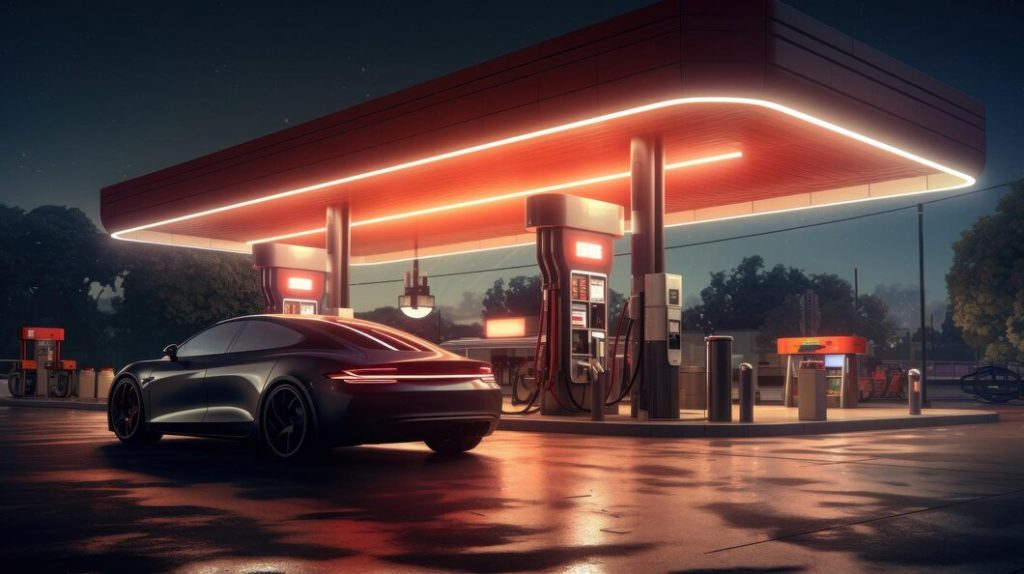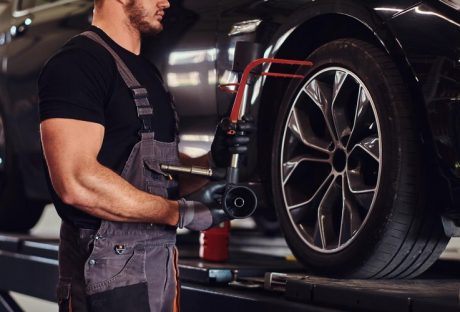Efficient EV charging stations are central to the electric vehicle revolution, supporting a sustainable transition to electric mobility. With the rapid adoption of electric vehicles, the need for optimized charging solutions is more critical than ever.
Keep reading to discover the best practices and tips for maximizing the efficiency of EV charging stations, an essential element in the evolving landscape of electric transportation.
Understanding the Basics of EV Charging Stations

Electric Vehicle (EV) charging stations are pivotal in supporting the shift to electric mobility. They come in various forms, including Level 1, Level 2, and DC Fast Charging, each serving different needs. The efficiency of these charging stations impacts not only the charging time but also the overall experience of EV owners and operators.
Level 1 Charging: When and Where It Works Best
Level 1 charging, the most basic form of EV charging, is ideally suited for situations where time is not a pressing factor. This type of charging is perfect for overnight use at home, utilizing standard 120-volt AC outlets. It allows EV owners to conveniently charge their vehicles while they sleep, ensuring a full battery for the next day’s commute.
In workplaces, where cars are often parked for the majority of the day, Level 1 charging also finds its place. It provides a slow, steady charge, sufficient for topping up an EV during an eight-hour workday. This slow charge rate is actually beneficial for battery health, as it causes less strain and potential long-term wear on the battery compared to faster charging methods.
Moreover, Level 1 charging is a cost-effective solution for businesses and public spaces that aim to offer EV charging without the need for expensive infrastructure upgrades. It’s an accessible option for visitors and employees alike, who can plug in and charge their vehicles without special equipment.
Despite its slower charging speed, Level 1 charging remains a viable and practical option, particularly in residential settings and for businesses looking to provide a basic charging service. Its simplicity and compatibility with standard outlets make it an indispensable part of the EV charging ecosystem.
Level 2 Charging: Balancing Speed and Efficiency
Level 2 Charging represents a significant step up in efficiency and speed from Level 1, making it a popular choice for both home and public use. Operating on a 240-volt AC supply, similar to what large household appliances like dryers and ovens use, Level 2 chargers offer a much quicker charging experience than their Level 1 counterparts.
For residential settings, Level 2 charging is an excellent investment for owners looking to have a home EV charging station. While it requires a dedicated installation, the ability to charge an electric vehicle significantly faster (typically in just a few hours) adds a great deal of flexibility for EV owners. This makes managing daily commutes and unexpected trips far more manageable, without the overnight wait required by Level 1 chargers.
In public settings and workplaces, Level 2 charging stations serve as a practical middle ground between the slow Level 1 and the rapid but more complex and expensive DC Fast Charging options. They are capable of providing a substantial charge during a shopping trip, workday, or meal, making them ideal for installation at malls, offices, restaurants, and similar locations.
Level 2 chargers are not just about speed; they also maintain a balance in terms of energy efficiency. They are fast enough to offer convenience and adaptability, yet they still operate within a range that is generally manageable for both residential and commercial electrical systems. This balance makes Level 2 chargers a versatile and widely applicable solution in the expanding infrastructure of EV charging.
DC Fast Charging: Meeting the Needs of Fast-Paced Lifestyles
DC Fast Charging caters to the fast-paced lifestyles of modern EV users, offering the quickest way to replenish an electric vehicle‘s battery. This type of charging, utilizing direct current (DC) instead of the alternating current (AC) used in Level 1 and Level 2 chargers, can significantly reduce charging times, often adding 60 to 80 miles of range in just 20 minutes.
A key advantage of DC Fast Charging is its ability to support long-distance travel and quick top-ups. This makes it an ideal solution for highway rest stops, urban areas with high turnover parking spots, and locations where drivers need a rapid charge to continue their journey. The ability to quickly charge is particularly beneficial for EV users who cannot charge at home or for those embarking on longer trips where time is a constraint.
The rapid advancement of EV technology is also evident in the evolving capabilities of DC Fast Chargers. With continual improvements, these chargers are becoming more efficient and powerful, reducing charging times even further and enhancing the overall user experience.
Best Practices for EV Charging Station Installation
The strategic placement of charging stations is crucial. They should be accessible and visible, yet mindful of the local power grid’s capacity. Upgrades to the power infrastructure may be necessary to support these installations, especially in densely populated areas.
Integration with Renewable Energy Sources
Pairing charging stations with renewable energy sources, such as solar panels, can significantly enhance their efficiency and sustainability. This integration not only reduces the carbon footprint but also can offer cost benefits in the long run.
Smart Charging Technology
Incorporating smart technology into charging stations can lead to more efficient energy use. Technologies that allow for demand-response interaction and scheduled charging during off-peak hours can optimize energy consumption and reduce costs.
Tips for EV Owners: Maximizing Charging Efficiency

For EV owners, the journey towards enhanced charging efficiency not only improves vehicle performance but also nurtures the longevity of their beloved electric companions. Embracing smart charging practices is more than a technical exercise; it’s about harmonizing your daily rhythm with your vehicle’s needs.
Imagine aligning your charging schedule with the quieter hours of the day, when electricity rates take a dip, allowing you and your vehicle to recharge cost-effectively in unison.
Caring for your EV’s battery goes beyond mere routine; it’s akin to nurturing a valuable relationship. Regularly checking the battery and steering clear of charging in harsh temperatures can be seen as acts of kindness towards your vehicle, ensuring its heart beats strong for longer journeys.
When it comes to public charging stations, especially the swift fast chargers, integrating charging into your daily errands or coffee breaks can turn a mundane task into a seamless part of your day, reducing waiting times and enhancing your overall experience.
The Role of Government and Policy in Supporting Efficient EV Charging Infrastructure
The role of government and policy in nurturing efficient EV charging infrastructure is pivotal in accelerating the transition to electric mobility. Through strategic policy frameworks and incentives, governments can significantly influence the development and accessibility of EV charging networks. By implementing subsidies and tax rebates for the installation of charging stations, they make it more feasible for businesses and homeowners to adopt EV technology.
Furthermore, governments can drive innovation and efficiency in this sector by funding research and development initiatives. This support can lead to advancements in charging technology, making it faster, more efficient, and more accessible. Regulations that encourage the use of renewable energy in EV charging stations also play a crucial role in ensuring the sustainability of the EV ecosystem.
The Future of EV Charging: Innovations on the Horizon
Emerging technologies in EV charging, such as wireless charging and battery swapping, hold the potential to revolutionize this space. These innovations could lead to faster, more efficient charging solutions, making EVs more accessible and convenient for a broader audience.
Efficient EV charging stations are key to the widespread adoption of electric vehicles. As we move forward, the continuous evolution of charging technologies and supportive policies will play a critical role in shaping a sustainable, electric-powered future.
Read Also:






















